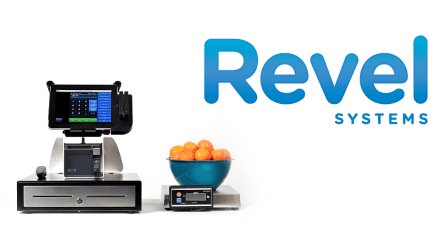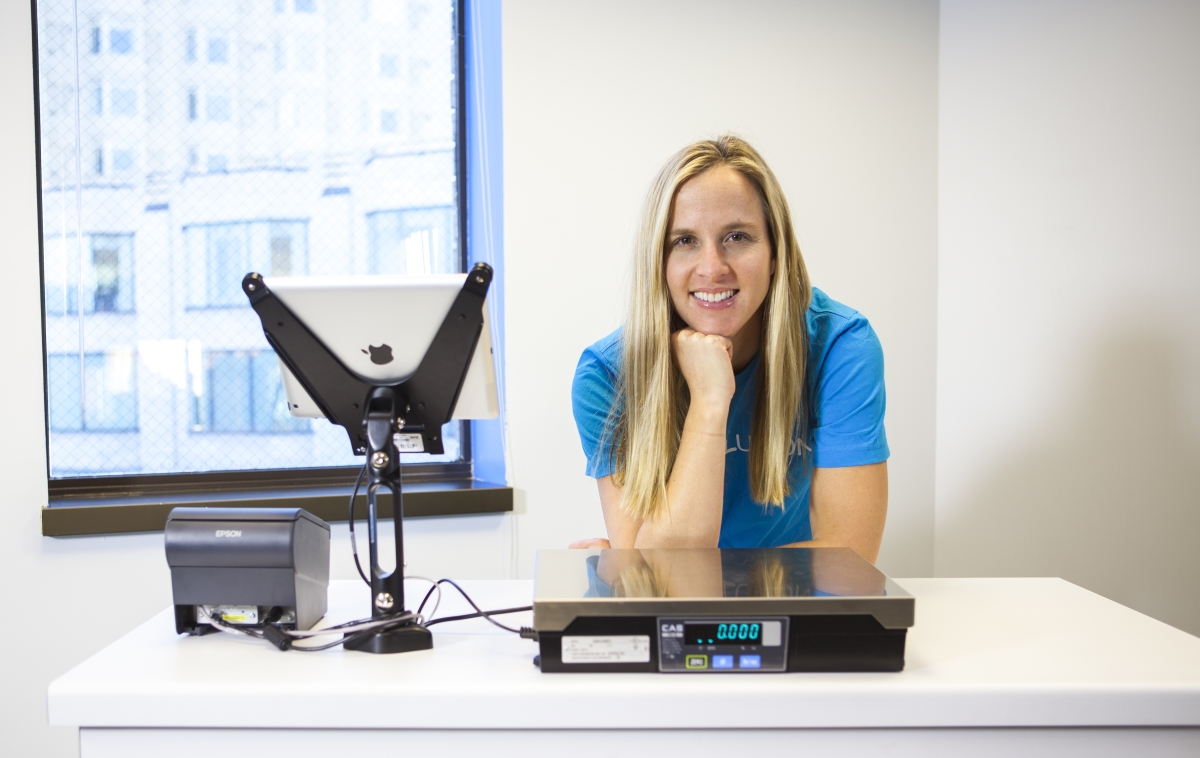Your business website is finally complete. You have created a company Twitter account and targeted ads are set to go live. So, pop quiz for you: Are you now finished creating your business’s online presence?
The Answer… NOT A CHANCE.
An online presence is much more than a handful of social media accounts and an artfully designed website, and it is never finished. A business’s online presence should include any and all of its activity online, and it should be created with clear, concise goals in mind. That means unless it can help you reach your goal, there is no need to share that hilarious article on the business’s blog, even if it did make you chuckle.
Ready to start building an online presence to help further your business? Here are FOUR easy steps you can start on now.
 Set Goals
Set Goals
What should the business’s online presence accomplish? Do you want to bring in more customers or beef up a fan page’s numbers? Without any idea of where you want an online presence to take a business, it can be impossible to get there.
Start at Home
Without a brick and mortar building, the website is a business’s virtual structure. It should be clean, readable and easy for customers to navigate. Keep in mind that clean and easy do not mean boring. Make sure the content on the blog page is engaging and helps contribute to the goals you set.
Focus on Value
Posting for posting’s sake is an enormous problem that people run into when trying to create an online presence. Out of things to say? There is no need to panic, but refrain from posting the first thing that crosses your news feed. An online presence should provide consistently valuable content that reflects back on the business and its goals. Have trouble creating new content? Bring on help to handle the task and hold brainstorming sessions to set up a topic schedule.
Be Outgoing
Hey, it is called social media for a reason! Put yourself and your business out there. Customers and fans are not the only ones with whom you should be engaging. Be sure to focus on building credible business relationships along the way.




 If you feel as if there is no purpose in your life, the answer to this one is probably a resounding “NO.” Take a minute to reflect here. If you could improve one area of your life and guarantee that in that particular one area you would eventually be able to meet and exceed your potential, what would it be?
If you feel as if there is no purpose in your life, the answer to this one is probably a resounding “NO.” Take a minute to reflect here. If you could improve one area of your life and guarantee that in that particular one area you would eventually be able to meet and exceed your potential, what would it be?
 With advertisements and marketing taking up various amounts of precious space on the vast majority of websites, oversaturation has conditioned a great many number of online users to simply ignore the tiny boxes vying for their attention. Some business owners operate under the impression that ads are ads, and that one is as good as any other. However, no matter whether the advertisement is text or image based, it has to be pretty compelling to actually garner clicks that will eventually lead to customers.
With advertisements and marketing taking up various amounts of precious space on the vast majority of websites, oversaturation has conditioned a great many number of online users to simply ignore the tiny boxes vying for their attention. Some business owners operate under the impression that ads are ads, and that one is as good as any other. However, no matter whether the advertisement is text or image based, it has to be pretty compelling to actually garner clicks that will eventually lead to customers. Successful startups spend a lot of time researching and strategizing new products and services before beginning development or even thinking about launching, but that same dedication often seems to disappear when it comes time to employ a bit of online marketing. Most online businesses will never grace the television screen between prime time sitcoms and the evening news, so online marketing and ad campaigns need to be focused, tight and ready to do their jobs — drive customers in and not away.
Successful startups spend a lot of time researching and strategizing new products and services before beginning development or even thinking about launching, but that same dedication often seems to disappear when it comes time to employ a bit of online marketing. Most online businesses will never grace the television screen between prime time sitcoms and the evening news, so online marketing and ad campaigns need to be focused, tight and ready to do their jobs — drive customers in and not away.
 Since co-founding the wildly successful POS software company, Falzone has graced lists in Business Insider, Forbes and the San Francisco Business Times naming her one of the most important entrepreneurs of her age. Revel Systems is not only in San Francisco where the company is based but isacross the nation in over 1,200 major locations. It is not just small retailers using this revolutionary technology for the iPad — several different sports stadiums recognize how powerful, useful and easy this type of technology is.
Since co-founding the wildly successful POS software company, Falzone has graced lists in Business Insider, Forbes and the San Francisco Business Times naming her one of the most important entrepreneurs of her age. Revel Systems is not only in San Francisco where the company is based but isacross the nation in over 1,200 major locations. It is not just small retailers using this revolutionary technology for the iPad — several different sports stadiums recognize how powerful, useful and easy this type of technology is. Still younger than 30 years old, Falzone has shown just what a “go get ‘em” attitude can accomplish. Planning and research might be necessary components of a successful startup, but when they become time sinks for procrastination, it might be time to stop thinking and start acting.
Still younger than 30 years old, Falzone has shown just what a “go get ‘em” attitude can accomplish. Planning and research might be necessary components of a successful startup, but when they become time sinks for procrastination, it might be time to stop thinking and start acting.
 Michael Chasen originally co-founded the education software provider Blackboard Inc. back in 1997. Ingenuity and critical planning helped Blackboard survive the recent recession when many of its competitors burst alongside the tech bubble. Part of Blackboard’s survival has been contributed to the company’s subscription model, which functions on an annual basis.
Michael Chasen originally co-founded the education software provider Blackboard Inc. back in 1997. Ingenuity and critical planning helped Blackboard survive the recent recession when many of its competitors burst alongside the tech bubble. Part of Blackboard’s survival has been contributed to the company’s subscription model, which functions on an annual basis.

 Want to draw in customers who have similar values and a focus on doing well? Most consumers choose to spend their money wisely, and products that are purpose-driven tend to top their lists. Make it obvious what benefits your products provide and customers may find their own purposes fulfilled.
Want to draw in customers who have similar values and a focus on doing well? Most consumers choose to spend their money wisely, and products that are purpose-driven tend to top their lists. Make it obvious what benefits your products provide and customers may find their own purposes fulfilled. Virtually no one likes working at a job where they feel as though they are doing little more than bringing home a paycheck. Like most consumers, employees typically like to clock out of work with a feeling that they have made a difference. Employee purpose should be communicated as clearly and concisely as possible, and when done correctly, everyone at the business will probably aim toward the same goal.
Virtually no one likes working at a job where they feel as though they are doing little more than bringing home a paycheck. Like most consumers, employees typically like to clock out of work with a feeling that they have made a difference. Employee purpose should be communicated as clearly and concisely as possible, and when done correctly, everyone at the business will probably aim toward the same goal.
 When stacked on a faulty or weak foundation, a business does not stand much of a fighting chance against unexpected adversities, such as a dip in the economy or an issue with product suppliers. Even minor bumps in the road can be enough to bring the whole thing tumbling down.
When stacked on a faulty or weak foundation, a business does not stand much of a fighting chance against unexpected adversities, such as a dip in the economy or an issue with product suppliers. Even minor bumps in the road can be enough to bring the whole thing tumbling down. It’s realistic. The foundation of a business should be structured on the owner’s capabilities, market information, available capital and all available resources.
It’s realistic. The foundation of a business should be structured on the owner’s capabilities, market information, available capital and all available resources.
 Schedule breaks. Long gone are the days of a boss or manager reminding you to step away from the computer for a few minutes, and in all likelihood, there are no nearby colleagues to chat with while stretching your legs. Set an alarm three to four times a day as a reminder to stretch your legs and maybe grab another glass of water.
Schedule breaks. Long gone are the days of a boss or manager reminding you to step away from the computer for a few minutes, and in all likelihood, there are no nearby colleagues to chat with while stretching your legs. Set an alarm three to four times a day as a reminder to stretch your legs and maybe grab another glass of water. Take a walk. Make a quick loop around the street on one of your breaks. Sunshine is great for Vitamin D production, and the act of just strolling around outside can do wonders for both physical and mental health.
Take a walk. Make a quick loop around the street on one of your breaks. Sunshine is great for Vitamin D production, and the act of just strolling around outside can do wonders for both physical and mental health. Put on real clothes. Okay, so one of the undeniable perks of working from a home office is the ability to wear pretty much what you would like. However, are you really going to be more productive if you lounge around in your pajamas all day? Getting dressed in the morning can provide a barrier between home and work time and can give a little extra boost of motivation. Plus, do you really want to sport your fuzzy slippers on your walk?
Put on real clothes. Okay, so one of the undeniable perks of working from a home office is the ability to wear pretty much what you would like. However, are you really going to be more productive if you lounge around in your pajamas all day? Getting dressed in the morning can provide a barrier between home and work time and can give a little extra boost of motivation. Plus, do you really want to sport your fuzzy slippers on your walk?